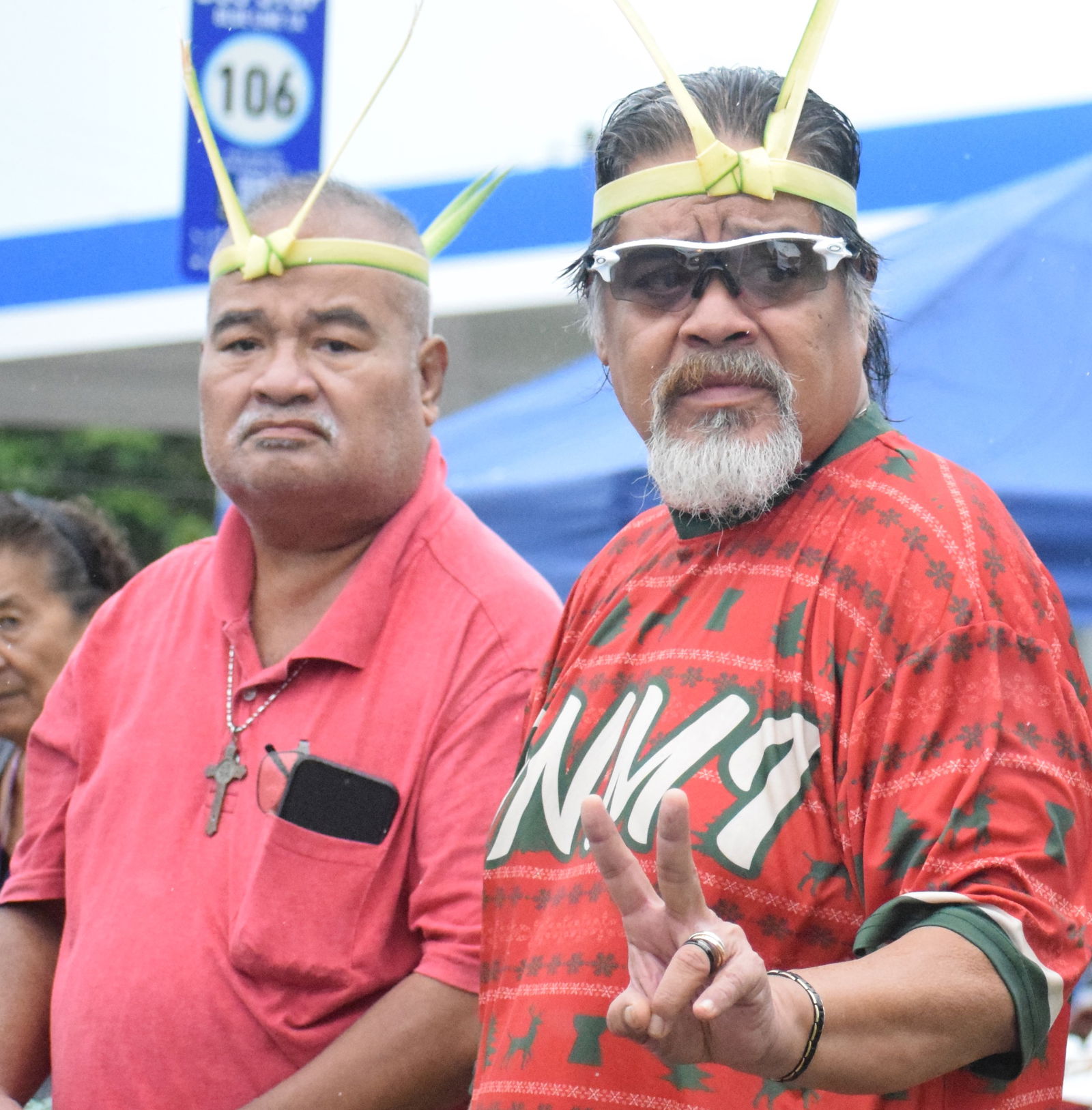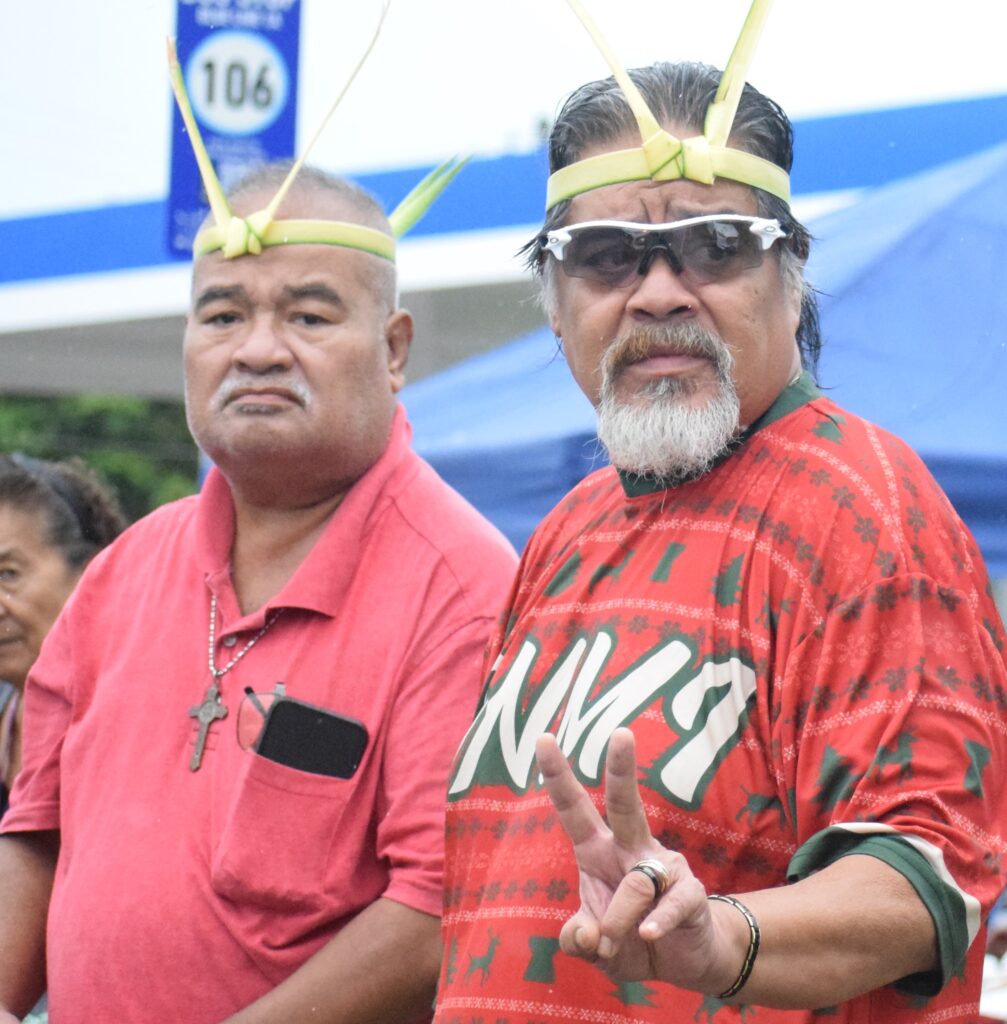
Uraali Refaluwasch Association senior advisor Melvin L.O. Faisao and Chamolinian Cultural Village Inc. chairman Gordon Marciano were among the residents who stood along the roadside to pay tribute to the late Gov. Arnold I. Palacios on Saturday.
Photo by Emmanuel T. Erediano
THE Uraali Refaluwasch Association is urging the Western Pacific Regional Fishery Management Council or Westpac to require or endorse site-specific environmental impact assessments for seabed mining proposed under President Donald Trump’s Executive Order 14285, which seeks to promote responsible mining of the seabed in the Pacific.
Issued on April 24, 2025, EO 14285 proposes the “responsible development” of deep-sea exploration and seabed mineral extraction within the United States’ exclusive economic zones.
Westpac is a regional body guided by the Magnuson-Stevens Fishery Conservation and Management Act to ensure responsible and sustainable fisheries in the Western Pacific.
In an email to Westpac members and officials, URA senior advisor and cultural practitioner Melvin L.O. Faisao urged the council to prioritize site-specific environmental impact assessments for any activities proposed within the CNMI’s exclusive economic zone, especially in areas adjacent to the Mariana Trench Marine National Monument.
As a member of the fishing and cultural community in the Northern Marianas, Faisao told Westpac that he is “deeply concerned” about growing regional interest in deep-sea mining and other extractive activities that “may pose long-term threats to our fragile ecosystems, traditional fishing grounds, and marine biodiversity.”
Although the marine monument provides essential protections within its boundaries, Faisao said surrounding areas “remain ecologically vulnerable and lack sufficient oversight.”
Faisao, on behalf of URA, requested Westpac to consider the following:
– Require or endorse site-specific environmental impact assessments for all proposed ocean-based activities near monument buffer zones or migratory corridors.
– Coordinate with the National Oceanic and Atmospheric Administration, U.S. Fish and Wildlife Service, and the CNMI government to create a monitoring and response framework for adjacent high seas or EEZ activities.
– Promote ecosystem-based, precautionary management principles to safeguard culturally and biologically significant waters.
– Ensure meaningful inclusion of CNMI indigenous and local stakeholders in the review and consultation process for any proposed ocean development projects.
Faisao assured the council that the CNMI is committed to being a responsible steward of the ocean, but added, “We need the partnership of regional bodies like Westpac to ensure that irreversible damage does not occur just beyond our protected zones.”











